Finance is certainly the best career choice for you if you enjoy numbers, statistics, and mathematics and have an analytical brain that enjoys solving problems. However, a degree in finance is just the beginning of your career in this vast realm, which is divided into several sub-domains and disciplines, each of which necessitates a specialized education to succeed. Advanced financial management courses offer you an unrivaled competitive advantage over your rivals in the industry, allowing you to land a job that perfectly suits your preferences and abilities.
Banking and finance are one of the fastest-growing industries, with numerous opportunities. In India, there are a variety of finance certification courses to choose from. The course’s topics and syllabus are diverse and interesting. There are many work openings available as well. One of the fastest-growing sectors of the Indian economy is financial services. Finance has become increasingly popular in the field of education, and qualification courses in the subject are now available. These programs include the necessary skills in a short amount of time and enable you to continue working or studying.
New avenues have been opening up in the Finance domain in this rapidly changing business environment. You will quickly recognize current market demands and take advantage of these new opportunities to advance your career. The readily accessible online finance courses and certifications also enable you to change your position in this field and obtain a professionally fulfilling job.
Professionals who earn an additional online finance degree or credential are highly valued in the corporate finance landscape. Obtaining a finance credential in a particular area demonstrates a professional’s experience in that field and allows for quicker career advancement. We have researched and compiled a mixed list of the best finance courses and certificates in India in 2021.
List of Top 10 Finance Courses in India in 2021
| S. No | Course Name | Approx. Duration | Approx. Cost |
| 1 | Chartered Alternative Investment Analyst | 1 Year | 1659$ |
| 2 | Certified Financial Planner (CFP) | 7-9 Months | 825$ |
| 3 | Certified Public Accountant certification | 2-4 Years | 3000$ |
| 4 | Certified International Investment Analyst | 1-2 Years | 1450$ |
| 5 | Financial Risk Manager (FRM) Certification | 1.5-2 Years | 600$ |
| 6 | Chartered Financial Analyst (CFA) | 1-4 Years | 1700$ |
| 7 | Certified Treasury Professional | 4-5 Months | 1000$ |
| 8 | Certified Merger and Acquisition Advisor | 3-5 Months | 2500$ |
| 9 | Certified Investment Management Analyst | 9-12 Months | 4000$ |
| 10 | Certified Fund Specialist | 4-5 Months | 1500$ |
List of Institutions Offering Finance Courses in India
The list of institutions offering finance-related educations and finance certifications in India is given below:
- Jamnalal Bajaj Institute of Management Studies, Mumbai
- Narsee Monjee Institute of Management Studies, Mumbai
- SIBM Bengaluru
- TA Pai Management Institute
- IBS Hyderabad
- IFMR Chennai
- GIM Goa
- Lal Bahadur Shastri Institute of Management, New Delhi
- Amity Business School, [ABS] Noida
- Bharti Vidyapeeth Institute of Management and Information Technology
- National Institute of Securities Markets (NISM)
- Jamia Millia Islamia University (JMIU)
1. Chartered Alternative Investment Analyst
Finance practitioners all over the world aspire to earn the CFA title. It is divided into three stages and is generally recognized as one of the most prestigious finance credentials. Portfolio management and investment research are the key focuses of this finance credential. Ethical and professional principles, quantitative methodology, economics, financial statements and analysis, corporate finance, portfolio management, equity, fixed income, derivatives, and alternative investments are among the key exam subjects.
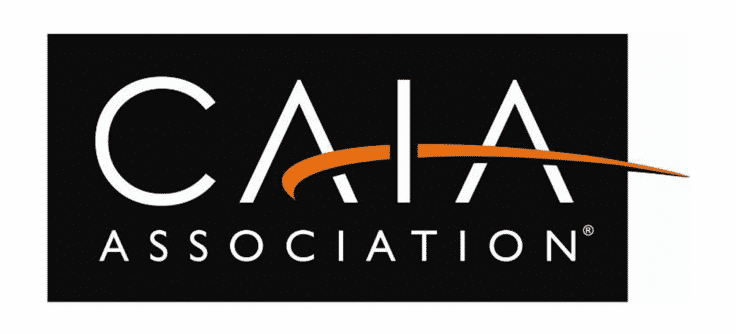
Job Profile: Risk managers, analysts, portfolio managers, traders, consultants.
Exams: The CAIA program has a two-tier examination that can be completed in a year. Both exams are scheduled for March and September.
Eligibility: Candidates must have a bachelor’s degree or one year of appropriate professional experience to be qualified to take this test. Alternatively, four years of experience in alternative investment research or other regulatory fields such as accounting, finance, or other related fields are needed.
2. Certified Financial Planner (CFP)
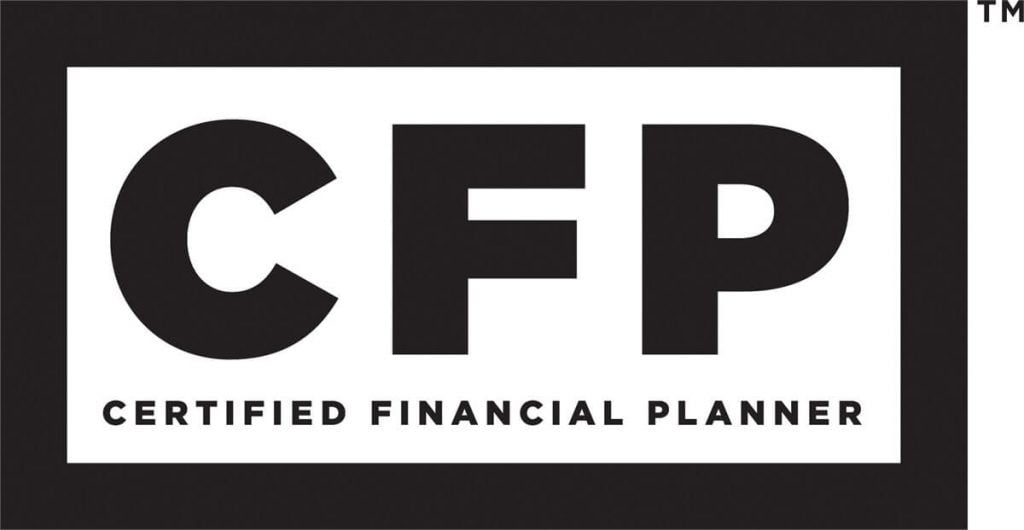
If you’re thinking about pursuing a career in CFP, read this before making any decision. Since most people believe that CFP is much simpler than any other financial course, we’d like to remind you that to be qualified for CFP certification, you must have three years of professional experience in financial services or two years of apprenticeship. In 2015, the average passing percentage was about 67 percent. According to a survey conducted by the CFP Board, 85 percent of applicants consider CFP certification to be the most important phase in their career, 95 percent believe CFP provides adherence to professional standards, and 97 percent believe that as financial planners, ethical code of conduct is very important, which CFP provides.
Job Profile: After earning your Certified Financial Planner credential, you’ll have a lot of choices. Financial planning encompasses a wide range of activities, from retirement planning to tax savings. Financial managers, risk managers, estate planners, retirement planners, and a variety of other positions are available.
Exam: The format of the test was revised in November 2014. The test is now 7 hours long. You must complete two 3-hour exams out of a total of 7 hours. There will be a 40-minute pause in between. You now have 170 questions to answer.
Eligibility: For CFP certification, there are primarily two educational criteria. The first step is to complete college or university-level coursework in a CFP Board-approved curriculum that covers the major areas of personal financial planning. The second step is to confirm that you have a bachelor’s degree or higher qualification from a regionally approved college or university. Before you sit for the CFP certification test, you can finish the coursework.
3. Certified Public Accountant certification

Rather than obtaining a finance degree, many finance practitioners opt for an accounting title. In the accounting world, a CPA is the gold standard, and it also works well in a finance career direction. Auditing and attestation, market climate and concepts, financial accounting and reporting, and policy are all included in the CPA curriculum. The overall cost of a CPA qualification (from start to finish) is about $3,000, and the student’s employer usually pays for it. The pass rate varies by test, but for a first attempt, it’s about 50%.
Job Profile: Certified CPA personnel develops the ability to crunch numbers at will as they are required to review day-to-day accounting activities with a major focus on taxation and auditing. The primary roles of certified CPAs are Public Accountant, Management Accountant, and Internal Auditor.
Exam: The CPA examination has four 4-hour sections that include; financial reporting and financial accounting, attestation and auditing, business culture, regulations, and concepts, etc. You need to complete all the components within 18 months.
Eligibility: In terms of eligibility, the CPA requires a bachelor’s degree or a similar technical qualification. Aside from that, a CPA must have two years of public accounting experience. A CPA must complete 40 hours of Continuing Education per year after being accredited.
4. Certified International Investment Analyst
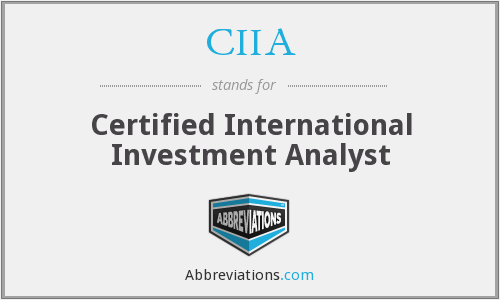
The CIIA exam is administered by the Association of International Wealth Management of India. The course focuses on both domestic and foreign investments. Financial accounting, corporate finance, stock valuation, economics, derivatives, and other general financial topics are also included in the course. A CIIA holder’s average starting salary is INR 56 lakh per year. You must have three years of formal experience in portfolio management, finance, or financial analysis to receive this credential.
Job Profile: Certified International Investment Analyst (CIIA) is a global finance designation offered by the Association of Certified International Investment Analysts (ACIIA) to financial professionals; candidates may be financial analysts, portfolio managers, or investment advisors.
Exam: There are three foundation-level tests, each of which covers the topics of corporate finance, monetary policy/economics, and Management of a portfolio. A multiple-choice, discursive, brief essay and estimation questions are all used in these tests
Eligibility: Candidates must have completed their undergraduate education and have experience in the technical sector of investment research or a related field to be considered. With that, a minimum of three years of professional work experience in fund management, financial analysis, or investment, in general, is required
5. Financial Risk Manager (FRM) Certification

As a Financial Risk Manager, you will be responsible for identifying and managing the risks associated with any investments or company. Risk Assessment, Financial Risk Consultant, and Asset Liability Management are only a few of the positions that the credential can help you with. This short-term course will undoubtedly assist you in developing your skills and obtaining desirable jobs. However, if you want something much more thorough and informative, a CFA is always an option.
Job Profile: FRM is a well-known and glamorous course, similar to CFA. This could be discovered when browsing through the LinkedIn profiles of many candidates employed in the financial sector and even the energy sector. The conquerors can have roles of Risk assessment analyst, financial risk consultant, and assets liability management analyst.
Exam: It takes a minimum of one year to complete both FRM tests, depending on the aspirant’s concentration and commitment. In May and November, candidates will take the FRM Part I and Part II exams.
Eligibility: To be eligible for certification as a Financial Risk Manager, you must meet the following requirements: Within four years of qualifying for the Part 1 test, you must have completed Levels 1 and 2 of the FRM Program. Within 5 years of passing the Part 2 test, you must have at least 2 years of appropriate work experience in risk profile.
6. Chartered Financial Analyst (CFA)

CFAs are more likely to deal with finances than with financial planning. Those who work in institutional money management and stock analysis should pursue this credential. You must have at least three years of professional experience and pass three qualifying exams to earn your CFA. CFA Qualification is one of the most well-known finance credentials. The demand for CFA accredited professionals has risen in recent years. This credential is provided by the Chartered Financial Analyst Institute to a variety of professionals who take the course.
Job Profile: Chartered Financial Analyst, Market Research Analyst, Business Consultant, Portfolio Manager, Investment Manager, Risk Manager, etc.
Exam: The CFA Program is divided into three tiers, each of which includes a six-hour test. To earn the CFA designation, candidates must pass these three comprehensive exams. At various stages of the course, each subject is assigned a particular weighting.
Eligibility: The eligibility criteria for the CFA course, min. Qualification required is Graduation (Full-time in any field) and for every next level, one must have passed the last level of the course.
7. Certified Treasury Professional
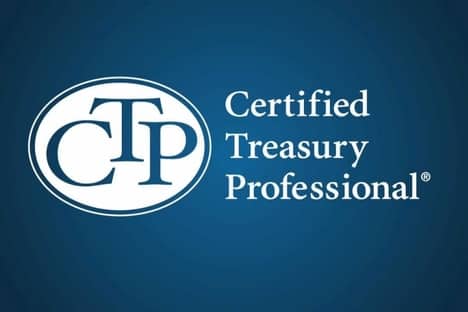
Those who wish to work as Corporate Treasury Officials will benefit from the CTP designation. The emphasis of this qualification is on cash management. The credential is valid for three years and focuses on risk management and corporate liquidity. CTP is a treasury certification that is recognized worldwide for its excellence. The Association for Financial Professionals (AFP) is the event’s sponsor. CTP holders should expect a decent salary and advancement in their careers.
Job Profile: The following job roles are available for those who pursue a career in CTP: Treasury Manager Treasury Analyst Treasury Director Assistant Treasurer
Exam:
Eligibility: To be considered for CTP, an applicant must meet these requirements.2 years of work experience in a finance-related or treasury management role. A bachelor’s degree in business, accounting, or finance, as well as at least two years of full-time teaching experience in a finance-related program. 4 years of experience as a teacher in a finance-related structure and curriculum.
8. Certified Merger and Acquisition Advisor

For individuals who want to advance their career in the M&A domain, the Alliance of Merger and Acquisition Advisors, or AM&AA, offers one of the best merger and acquisition certification programs in the world. The CM&AA credential, or accredited merger and acquisition advisor, is a level of professional excellence for professionals employed in corporate finance, transaction, and advisory services. The CM&AA certification is given at the end of AM&AA’s 5-day mergers and acquisitions training program, which is a residential short-term intensive program.
Job Profile: The job roles available for those who pursue a course in CM&AA are Senior Contract Analyst, Director of Operations, Chief Financial Officer, and Vice President of Strategy
Exam: For candidates who participate in the merger and acquisition certification program for CM&AA certification, the final exam is optional and the certificate is awarded regardless to candidates who complete the program. The exam is only to test the candidate’s retention of the subject matter taught throughout the mergers and acquisitions training course and the result is solely for personal use as it is not required by any prospective employer or recruiter.
Eligibility: This course is open to any professional who has completed their CM&AA training.
9. Certified Investment Management Analyst
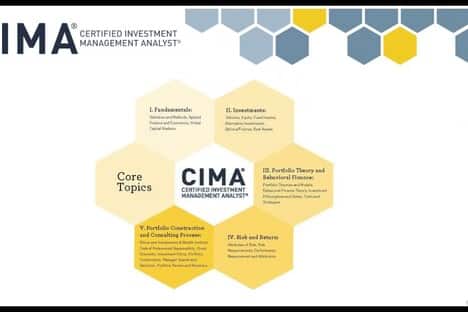
Certified Investment Management Analyst is a globally recognized credential. It’s a qualification in financial analysis and investment management. Financial analysts, investment managers, wealth management experts, and financial planners will all benefit from the CIMA credential. CIMA certification is open to professionals with at least three years of experience and a CIMA Certificate in Business Accounting or other related credentials.
Job Profile: The job profiles that are available for those who take up a course in CIMA are Portfolio Manager, Investment Consultant, Senior Portfolio Manager, and Financial Advisor.
Exam: You must pass a five-hour computer-based exam that covers the following topics: Fundamentals of finance, investments, portfolio theory, behavioral finance, and so on Returns and danger, Portfolio construction, financial consultancy. After passing your test, you must pay your certification fee, pass a background check, and sign an agreement stating that you will follow the Investments & Wealth Institute’s Code of Professional Responsibility.
Eligibility: The eligibility criteria for CIMA is; Candidate must have completed an executive degree at a prestigious university. There must be no inconsistencies in the candidate’s checked background check. This certification course is open to anyone who has completed an executive education program at a registered institute and has passed the background check and application approval process.
10.Certified Fund Specialist
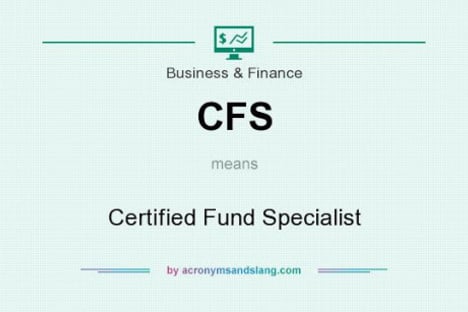
A certified fund specialist (CFS) is a financial service professional with specialized knowledge of mutual fund selection and management. Many already employed in the financial industry, such as accountants, investment bankers, brokers, money managers, and certified financial planners, usually receive the credential. Learn more about obtaining a CFS certification and how working with one will help you improve your investment game.
Job Profile: The job roles available for those who pursue a course in Certified Fund Specialist are Senior Contract Analyst, Financial Planner, Financial Advisor, and Vice President of Strategy.
Exam: The CFP certification program has five exams for six modules, which deal with disciplines like Financial Planning, Investment Planning, Risk Analysis & Insurance Planning, Advance Financial Planning, etc.
Eligibility: The candidate must have worked in a technical financial industry for at least 2000 hours. Candidates must have a bachelor’s degree or higher to be considered for this short-term finance course.




















